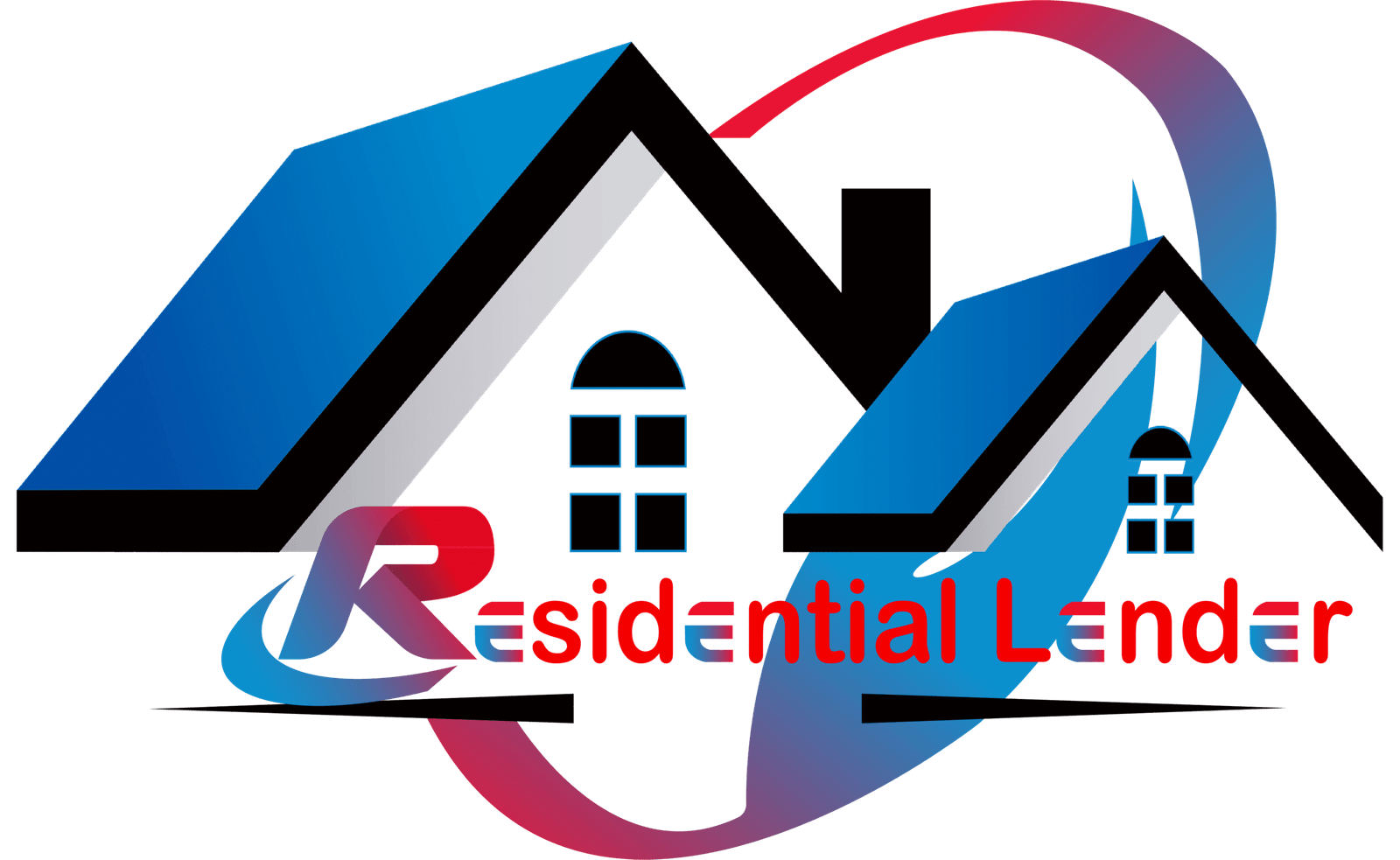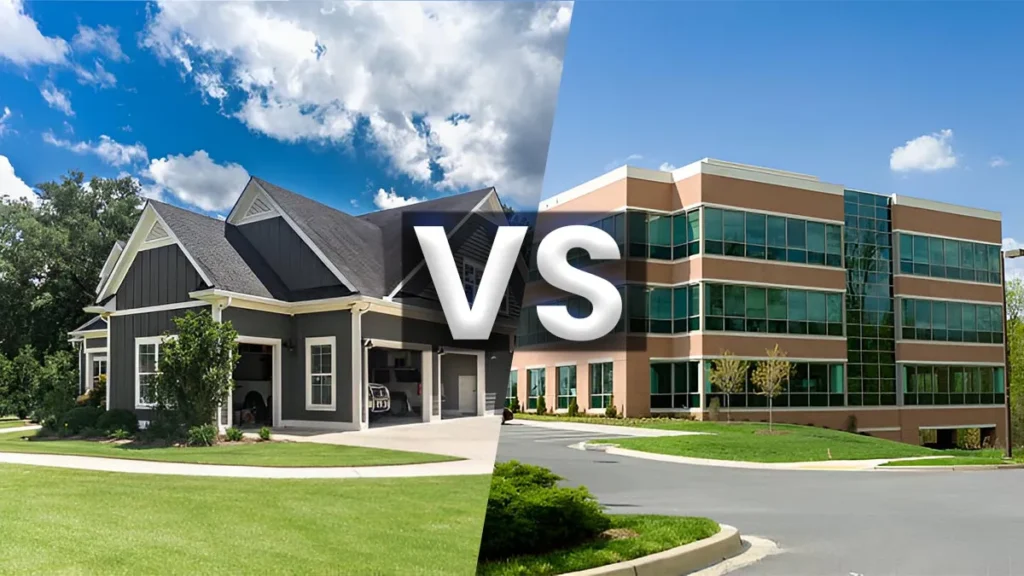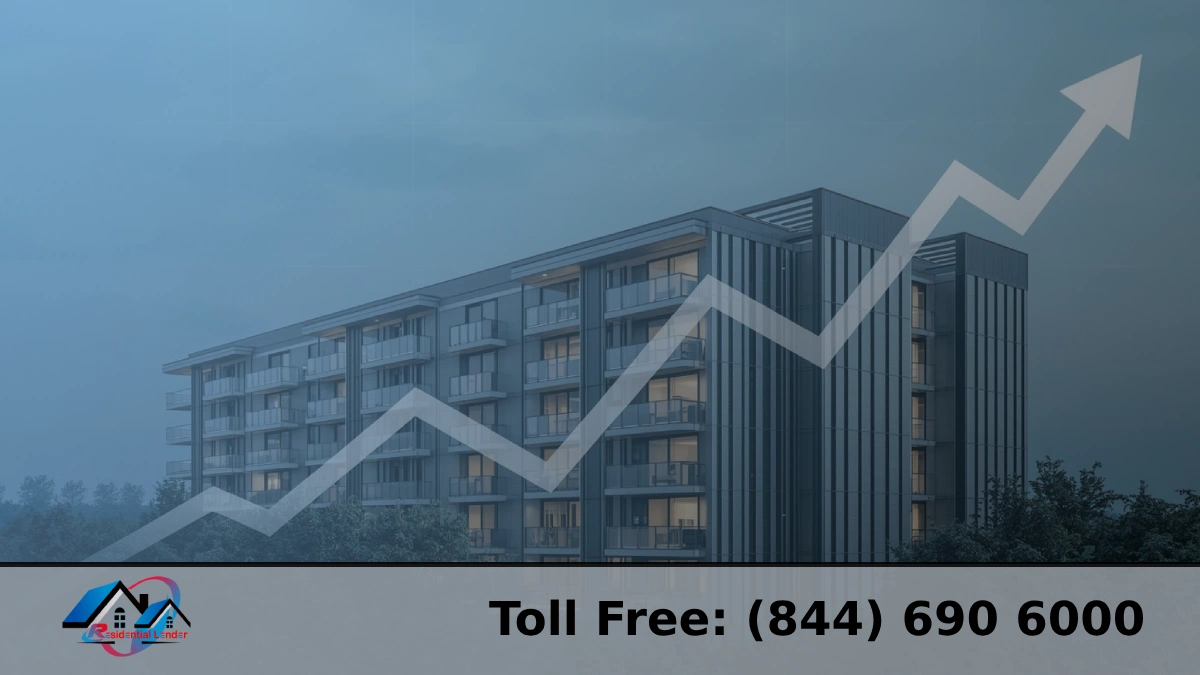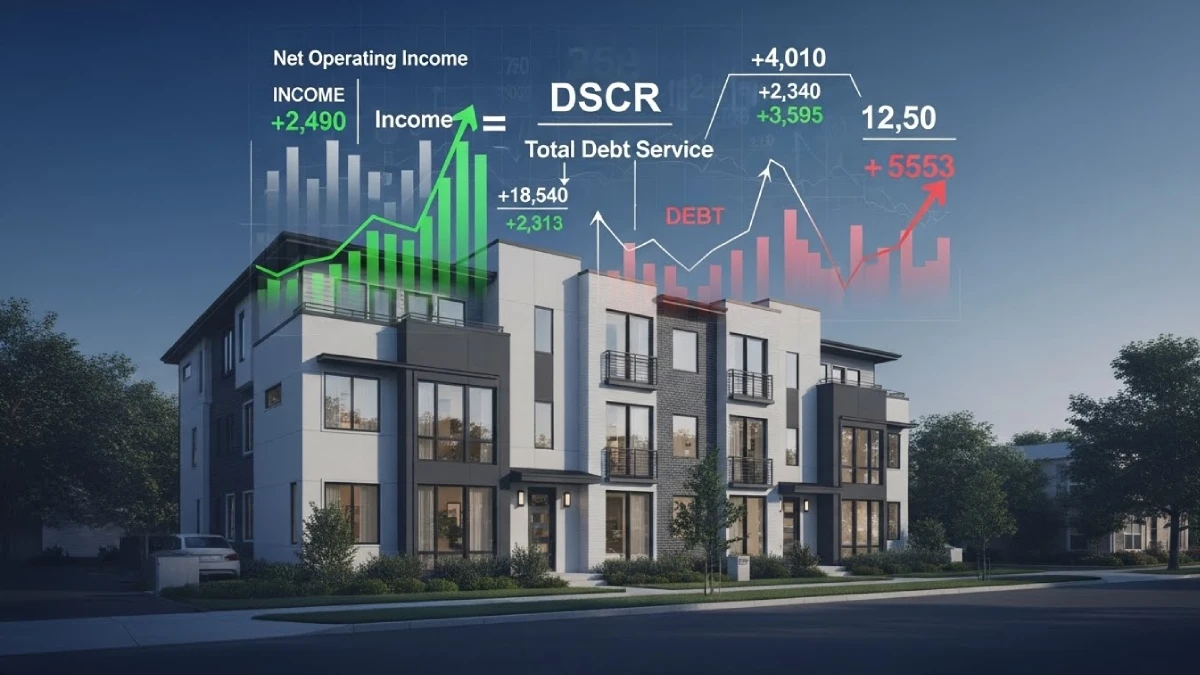Residential vs. non-residential investment What kind of investment do you want to make? Over the years, real estate has consistently given buyers good returns, with averages around 8.6% per year. The money you make from your property is called the return on investment (ROI). It is essential information for anyone who wants to get into the exciting world of real estate.
Home investments, such as single-family houses and apartments. Business investments, such as office spaces, business buildings, and so on, are the primary real estate investments. Each has its chances and challenges, and how to get the most out of your RO will differ.
Getting suitable finances is essential, no matter what you do. Going to ResidentialLender.net is the only way to get professional help getting loans for homes and businesses. Let’s learn more about dealing in real estate and how to make the most money.
Understanding Residential Investment
Residential properties are places where people, including families, can live. Many types of homes are in this group, from single-family homes to cottages. This stands alone in apartment and condo buildings with more than one unit.
Models for Rental Income When you invest in residential homes, rent is the primary way you make money. Some common ways to make money from rentals are:
Traditional rentals are ones with long-term deals and steady monthly rent.
Short-term rentals: Renting out homes for short amounts of time (like on Airbnb) can bring in more money, but the manager has to be more involved.
Comparison of pros and cons of traditional vs. short-term rental income streams
| Feature | Traditional Rentals | Short-Term Rentals |
| Income Frequency | Monthly | Per stay/nightly |
| Income Stability | Consistent | Fluctuates based on seasonality and demand |
| Income Potential | Generally lower per unit | Potentially higher per unit, especially in peak seasons |
| Tenant Turnover | Less frequent | More frequent |
| Management Involvement | Lower | Higher requires more active management |
| Vacancy Rates | Typically lower | It can be higher, especially in off-peak seasons |
| Legal and Regulatory Environment | Simpler | Often more complex due to local regulations and licensing |
| Target Market | Primarily long-term residents | Tourists, business travelers, and leisure travelers |
Rental Yields on Average Rental yield is a crucial indicator of building profitability. Yields differ depending on your location, property type, and market state. Here’s a general comparison:
| Property Type | Average Rental Yield |
| Single-Family Home | 4-6% |
| Apartment Building | 5-8% |
| Condominium | 4-7% |
Things that affect residential ROI Several things affect the return on investment (ROI) of real estate investments:
Place: Prime places that are in high demand usually have higher returns.
Type of Property: Different properties have different rental yields and growth potential.
Maintenance prices: Regular maintenance is necessary, and the prices can affect how much money you make.
Property Management: Hiring a professional manager can make things run more smoothly, but it costs more.
Market Conditions: Job growth and economic interest rates affect property values and renting demand.
Potential for Appreciation In addition to renter income, the value of a home can rise over time. Location, economic development, and land improvements are some of the factors that contribute to appreciation.
Tax benefits: Owning a home often has tax benefits, like deducting mortgage interest, property taxes, and the value of the house going down over time. However, tax rules are complicated, so you should talk to a financial advisor to understand your choices.
| Tax Benefit | Description |
| Mortgage interest deduction | You can deduct the interest paid on your mortgage from your taxable income. |
| Property tax deduction | You can deduct the property taxes you pay from your taxable income. |
| Depreciation deduction | You can deduct the depreciation of your property over time from your taxable income. |
| Capital gains tax exclusion | If you sell your primary residence and meet specific requirements, you may be able to exclude the capital gains from your taxable income. |
Remember that investing in real estate comes with risks. To get the best return on investment (ROI), you need to do a lot of studying and planning.
Delving into Non-Residential Investment
Unlike private real estate, commercial real estate is built for business use instead of living.
This group includes office buildings, shopping malls, restaurants, industrial warehouses, and more.
How businesses work when investing in properties that aren’t homes: the business plans are often different from those when investing in homes:
Leasing means making money by renting out business areas to other companies.
Property management means taking care of business properties for owners and getting paid for them.
Development: Building new business buildings to rent or sell.
Real Estate Investment Trusts, or REITs, let you invest in a company that owns and manages properties that bring in money.
Commercial vs. residential real cost?
The rent for non-resident homes varies depending on where they are, what kind of property they are, the market, and the economy. In short, here’s what it all means:
Several things affect ROISS that affect the return on investment (ROI) of types of investments:
Tenant Mix: Having a variety of tenants can help keep income stable.
Lease Terms: Longer lease terms help keep your pay steady.
Operating Costs: Property taxes, insurance, utilities, and repairs affect how much money a business makes.
Location: Rents and property prices tend to be higher in prime areas.
Conditions in the economy: Economic changes affect property prices and occupancy rates.
More money is needed to start.
Most of the time, non-residential properties require a much more significant starting investment than residential properties. This is because of the size of the land, the cost of building it, and the longer lease terms.
Possible Advantages of Building on Non-Residential Investment
Even though it’s risky, developing properties that aren’t homes can bring in a lot of money. One potential benefit is a higher return on investment (ROI) compared to getting an already-built home.
Control over how the property is designed and what it needs.
Chance to make long-term streams of cash.
It’s essential to remember that investing in non-residential real estate often requires specific skills and information. For success, talking to professionals with a lot of knowledge is necessary.
Comparing the ROI Landscape
How to Get Around on the Investment Journey
The first step is to find the right residential or non-residential land. Finding the best financial option is essential for getting the best return on investment (ROI) and meeting investment goals.
In this case, Residentiallender.net is the only place you need to go to find financing choices for both residential and commercial property investments. Our team has much experience reviewing real estate loans, so we can ensure we find the best option for your needs.
What makes Residentiallender.net unique is this.
Without a doubt, the experts: Our experienced professionals know all the ins and outs of home and commercial financing. We’re proud to make the loan process easy to understand and give you clear instructions at every step.
Increased Lending Network: We’re not just like other lenders. Our network includes private lenders that work directly with us. They offer competitive rates and flexible terms so that you can get more financing choices.
Every business situation is different, so we offer customized loan solutions. Our team looks at your business goals and financial situation to find the best loan program that fits your needs.
Finding your way around the complicated world of real estate funding can be challenging. At Residentiallender.net, we become your committed partner, making the process easier and ensuring you have the tools to make your investment dreams come true.
Let’s get in touch and talk about how we can help you get the most out of your real estate investment path!
Where to Go to Get a Good Return on Your Real Estate Investment
We’ve looked at how investing in residential and non-residential property is different. Residential properties have a steady income stream and lower initial costs. They are easier to handle, so they are a good choice for people who want steady returns and predictable cash flow.
Even though you need a considerable start-up investment and more work to run, you are more sensitive to economic changes. Commercial properties offer you more money back, longer lease terms, and the chance to make the place bigger.
The best choice for you will depend on your goals and how much risk you are willing to take. You should carefully consider the area, property type, and market conditions. And your financial means to get the best return on investment (ROI).
Are you ready to see what real estate investment can do for you?
You can trust ResidentialLender.net for your help. A free meeting and personalized loan review can help you find the best way to get the money you need for your investment plan. There are a lot of steps involved in getting a loan. But our team of professionals can answer your questions and help you through it all.
Do not wait! Call Residentiallender.net right now to set up your complimentary meeting. And take the first step toward your real estate business goals.
FAQs
Q: What is the average ROI for real estate investments?
It depends on the type of property. Where it’s located and the state of the market to find the average return on investment (ROI). Historically, it has ranged from 8–12%, but it’s essential to conduct thorough research for specific market data.
Q: Which type of property investment is better, residential or non-residential?
Both residential and non-residential properties have their advantages. Residential properties offer stability and potential appreciation. Nonresidential properties can provide higher returns but often require a more significant upfront investment. The best choice depends on your investment goals, risk tolerance, and financial situation.
Q: What factors should I consider when choosing between residential and non-residential properties?
Key factors include:
- Investment goals (income generation, long-term appreciation, or both)
- Risk tolerance
- Available Capital
- Time commitment
- Market conditions
- Knowledge and expertise
Q: How can I start real estate investing if I have limited funds?
You could work with other investors, buy real estate investment trusts (REITs), or focus on smaller buildings that cost less upfront.
Q: What are the typical costs associated with real estate investment?
Costs include the purchase price, closing costs, property taxes, insurance, maintenance, and potential property management fees.
Q: How can ResidentialLender.net help me secure financing for my real estate investment?
Residentiallender.net offers expert guidance on navigating the loan landscape for residential and non-residential properties. We give you access to many lenders, including our private lenders, and we can help you find a loan program that fits your needs.
Q: What sets ResidentialLender.net apart from other lenders?
Residentiallender.net stands out because we have extensive experience underwriting real estate loans and access to various lenders. We are dedicated to giving each client personalized loan solutions tailored to their business goals.








